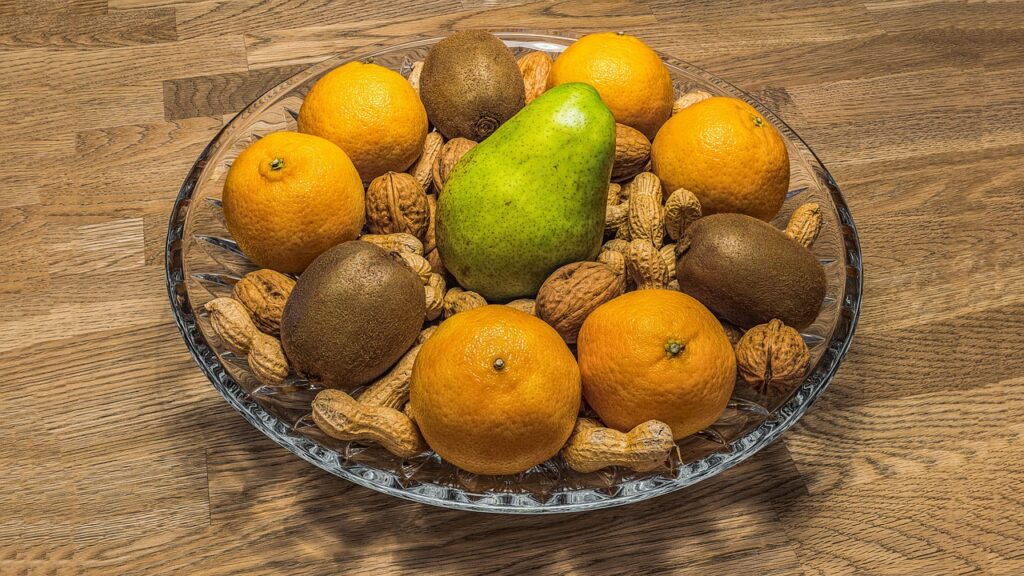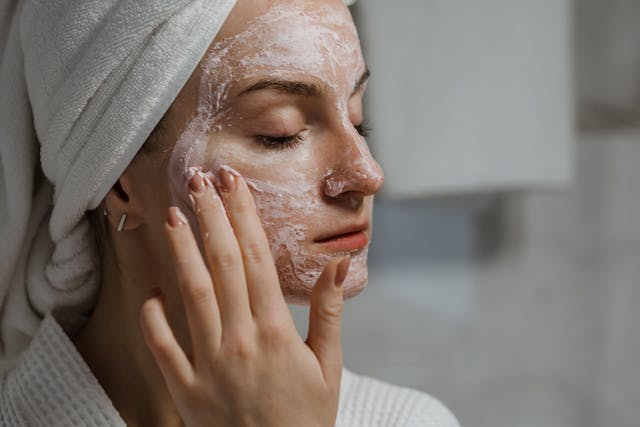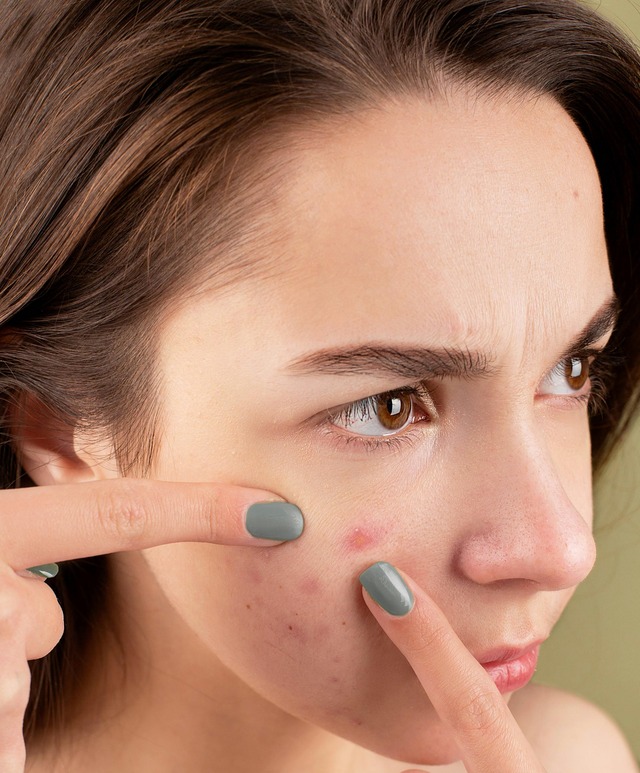- Introduction
- Drinking Plenty of Water
- Vitamins with Antioxidant Effects
- Required Fats
- Collagen and Protein
- Foods for Liver
- 10 Best Skin-Boosting Foods (Backed by Science)
- Fatty Fish
- Avocado
- Carrots
- Walnuts
- Green Tea
- Dark Chocolate
- Sunflower Seeds
- Garlic
- Pomegranate
- Foods for healthy skin Health Tips
- Conclusion
- Frequently Asked Questions
Introduction
Which foods for healthy skin actually work? Not everyone knows that there are also foods for the skin that help improve its brightness and reduce wrinkles. It is not necessary to follow a routine based on creams and tonics; when you eat the best foods for glowing skin, like berries, their antioxidants repair sun damage.
First of all, it is good to know that the skin is considered a real organ and the most extensive organ we have. It is a defensive barrier that protects us from all pathogens, but it also plays other fundamental roles:
- Helps the body maintain water balance
- Adjust the temperature
- Through the skin, we have the tactile perception of what surrounds us
The skin is made up of three main layers:
- Epidermis – The outermost one, which protects us from pathogens, toxins, UV rays, and dehydration
- Dermis – Made up of tissues that give strength and elasticity
- Hypodermis – Acts as a thermal insulator and has a protective function toward organs and muscles.
The skin undergoes many cycles of self-renewal and repair, and proper nutrition will provide many of the necessary materials to keep the skin beautiful and healthy. This means you need to eat plenty of healthy, whole foods that contain a wide range of vitamins, minerals, antioxidants, lean protein, and omega-3 fatty acids.
In the following description, you will see some foods that provide important nutrients for your skin. Prioritizing foods for healthy skin provides the vitamins and antioxidants your complexion craves.
Drinking Plenty of Water
Drinking water essentially helps the well-being of the skin by moisturizing the skin from the inside. If you’re wondering what to eat for clear skin, start with hydration. Water flushes toxins that cause acne.
Foods for healthy skin start with hydration. Drinking 2L of water daily plumps skin cells, while water-rich skin-boosting foods (cucumbers, watermelon) add extra moisture.
By supporting the well-being of the liver by drinking plenty of water, you promote the well-being of the intestines at the same time and thus reduce the body’s toxin load, which could contribute to skin impurities, rashes, or other symptoms. Constipation increases the accumulation of waste materials and toxins in the body, which in turn puts a strain on the liver.
Vitamins with Antioxidant Effects
Antioxidant means an antioxidant and antioxidants prevent the action of free oxygen radicals when there are too many of them. In other words, antioxidants prevent the oxidation of other compounds. Free oxygen radicals in our body are normal, but if there are too many of them, the skin can feel cloudy, and less elastic and the signs of aging appear more strongly.
Then the use of antioxidants promotes the condition of the skin. You can get antioxidants from food, nutritional supplements, and skin care products. For example, vitamin C is a powerful antioxidant that supports the formation of collagen and prevents the oxidation of vitamins E and A and fats.
Required Fats
Essential fatty acids promote skin condition by maintaining the skin’s moisture balance and preventing inflammation. The skin may feel dry and even flaky if the body does not get enough good fats. Salmon tops the list of best foods for glowing skin, thanks to its omega-3 fatty acids that reduce inflammation.
Omega-3 fatty acids are a really important part of the skin’s well-being, and getting enough of them must be ensured from the diet or by consuming them as a supplement because our body cannot produce them by itself.
Collagen and Protein
when you get enough protein from your diet, it is broken down into amino acids during digestion and eventually forms collagen. Collagen plays a key role in keeping the skin elastic. You can get protein from both animal and plant products: organic eggs, fish, meat, game, quinoa, buckwheat, and black beans are excellent sources of protein.
Foods for Liver
High-quality and versatile nutrition is very important for liver well-being! The liver’s job is to clean the body – among other things, it regulates blood sugar, produces bile, and stores vitamins. The liver function is essential for the body, and various skin symptoms may indicate liver function disorders.
The most important thing is to support liver function by consuming as little processed, clean, and high-quality food as possible. In addition to processed food, a high-sugar and high-fat diet, smoking, alcohol, and medications put a strain on the liver.
Consuming organic options is recommended because then, less burdensome toxins end up in the liver. Enjoy plenty of good fats, leafy greens, lots of vegetables and berries, fruit, and water – and prefer natural cosmetics in your skincare.
10 Best Skin-Boosting Foods (Backed by Science)
Fatty Fish
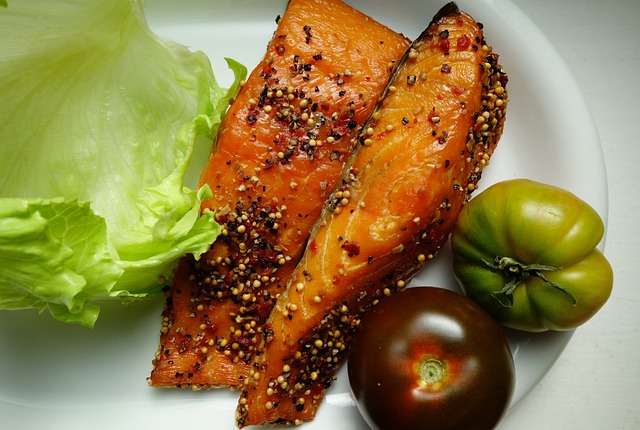
Fatty fish, such as salmon and mackerel, are excellent sources of omega-3 fatty acids, which help skin look plump, supple, and radiant. Additionally, these foods can reduce inflammation, redness, and acne and increase the skin’s resistance to ultraviolet (UV) rays.
Among the best foods for glowing skin, fatty fish like salmon deliver omega-3s that strengthen your skin barrier – proven to reduce redness in 8 weeks (Journal of Dermatology, 2023).
Antioxidant-rich fatty fish contains high amounts of vitamin E, which protects the skin from irritation and free radical damage, which can accelerate skin aging. Fatty fish are also rich in protein and zinc, which also help strengthen the skin and accelerate the production of new skin cells
Avocado
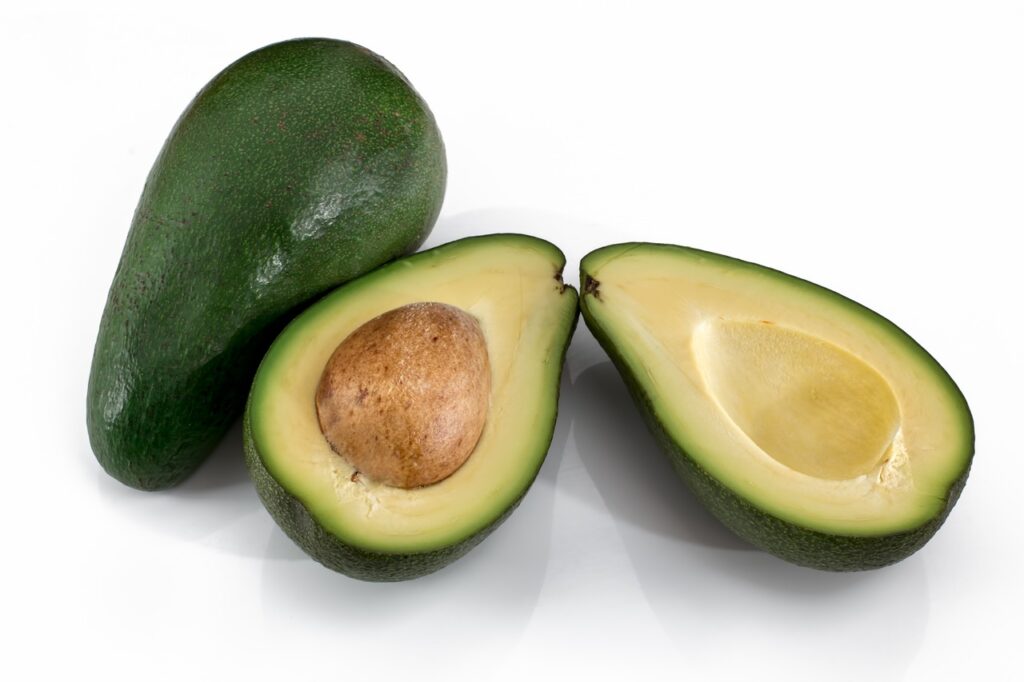
There are also vitamins C and E that the body needs, two important essential nutrients that are beneficial to skin health and fight the formation of free radicals.
In addition, avocados are one of the best foods for glowing skin and are rich in biotin, a B vitamin that some nutritionists believe may help promote healthy skin and hair. A lack of biotin can lead to a variety of skin problems, such as rashes, pain, dandruff, dermatitis, and general itching.
Carrots
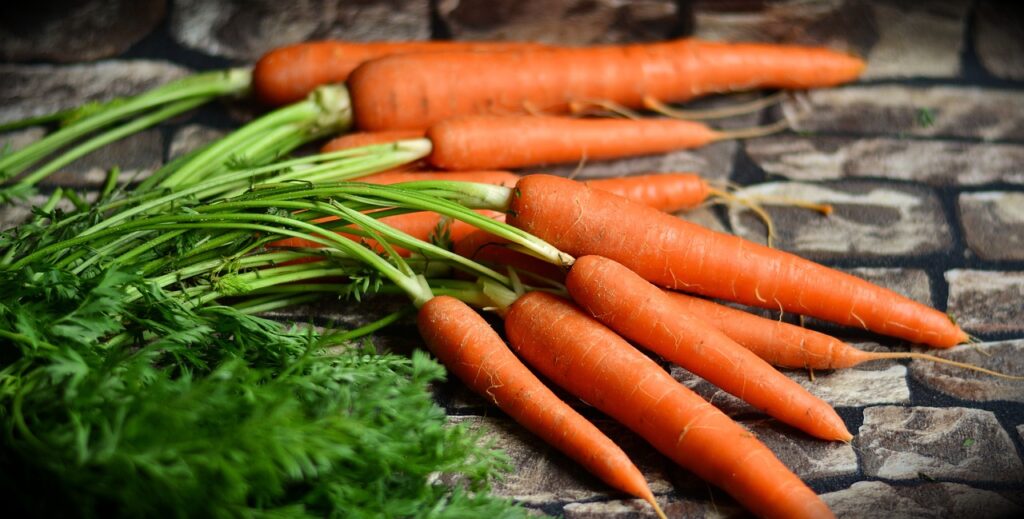
Foods for healthy skin, like Carrots, are rich in vitamin A, which protects against sun damage, cell death, and wrinkles. Vitamin A also gives the skin a healthy, soft glow.
You can get vitamin A by eating fruits, vegetables, and other plant-based foods. The body converts beta-carotene into vitamin A to protect the skin from sun damage. Foods containing vitamin A also include oranges, spinach, sweet potatoes, pumpkin, bell peppers, broccoli, etc.
Walnuts
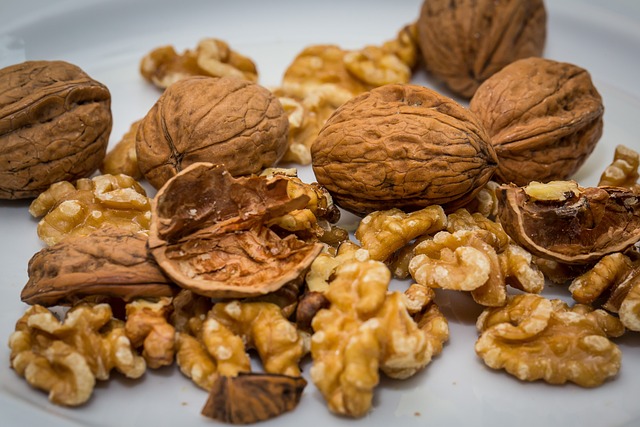
Nuts are a nutrient-dense snack that packs a punch even when consumed in small amounts, and it is one of the best foods for glowing skin. The vitamin E, vitamin C, zinc, and selenium contained in walnuts can promote skin health.
Walnuts contain more omega-3 and omega-6 fatty acids than other nuts, making them a healthier choice if you’re looking to improve your skin. But it should be noted that you need to control the intake; a handful (1/4 cup) per day is enough.
Excessive intake may lead to weight gain. In addition, eating too many walnuts may cause certain adverse reactions, and some people may experience bloating stomach pain and skin irritation.
Green Tea
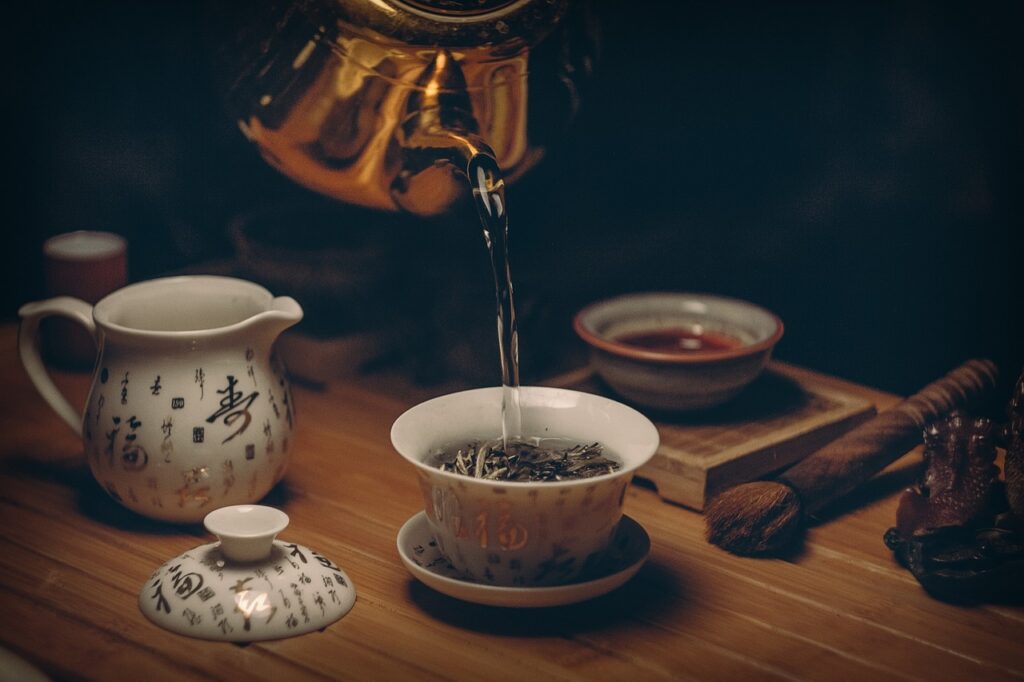
Research suggests that green tea can protect the skin from external stress and aging. This is because green tea is rich in antioxidants as well as catechins, which protect the skin, reduce redness, increase skin moisture, and improve its elasticity.
An antioxidant-rich diet combined with hydration can even out skin texture, strengthen the skin barrier, and improve overall skin health.
Avoid adding milk to green tea, as this combination can reduce the effectiveness of the antioxidants in green tea.
Dark Chocolate
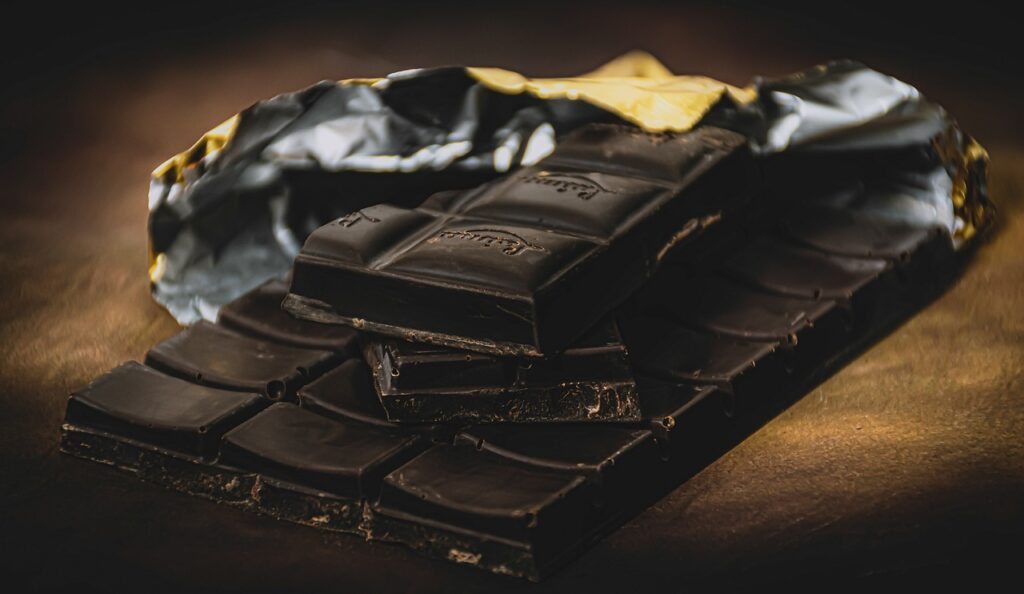
Looking to indulge in something sweet once in a while? No need to wait for any reason; this food is your chance to enjoy. Dark chocolate is good for your skin because cocoa powder is rich in antioxidants.
These antioxidants can make the skin hydrated and smooth, reduce the likelihood of sunburn, and improve blood flow to the skin. Dark chocolate with 70% cocoa is a healthy choice because it contains more antioxidants and less added sugar.
Sunflower Seeds
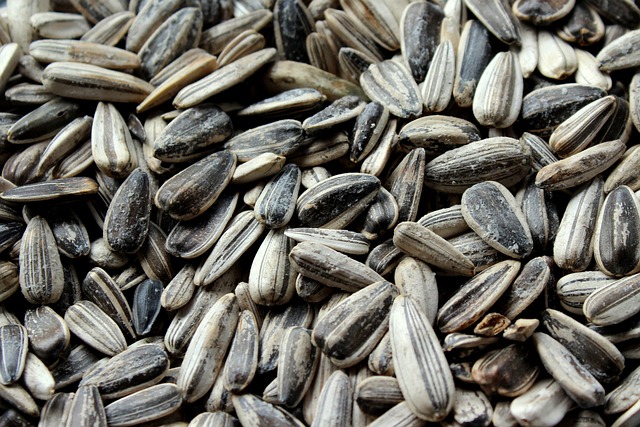
Foods like Seeds and nuts are healthy snacks that can promote healthy skin. Sunflower seeds are an excellent choice because they contain high amounts of vitamin E, selenium, and zinc. Sunflower oil is rich in linoleic acid and essential fatty acids that support skin health.
Garlic
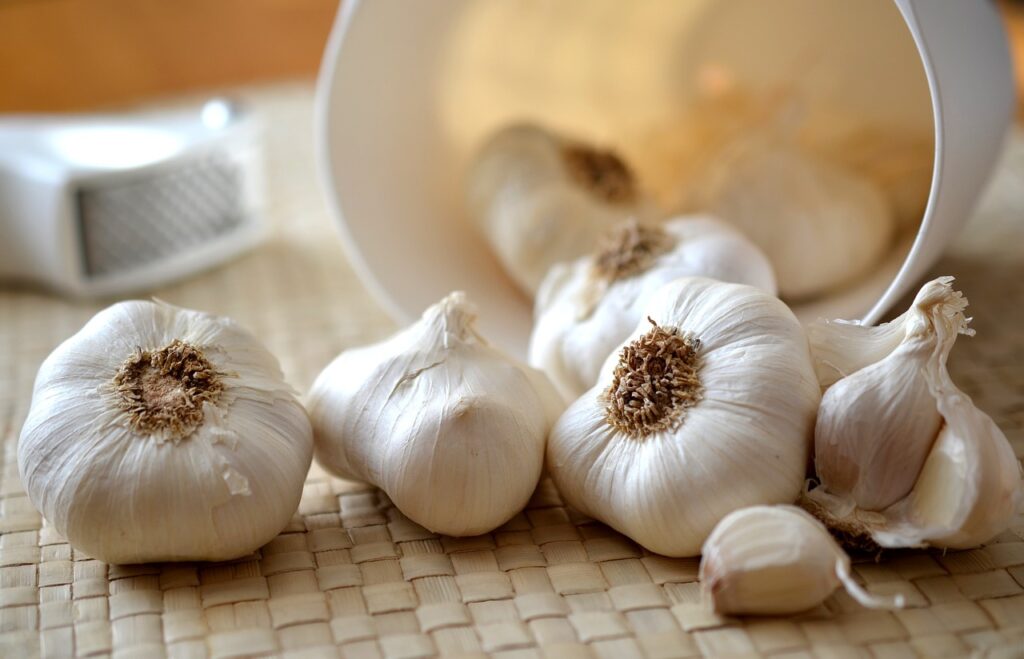
Garlic has been famous for its incredible antibiotic properties for centuries, dating back to medieval times. However, it is less known for its excellent properties for the skin, but no less effective. Garlic is a good source of vitamin C and B6, potassium, iron, magnesium, and calcium, which make it a food with strong anti-oxidant and anti-inflammatory characteristics.
Pomegranate
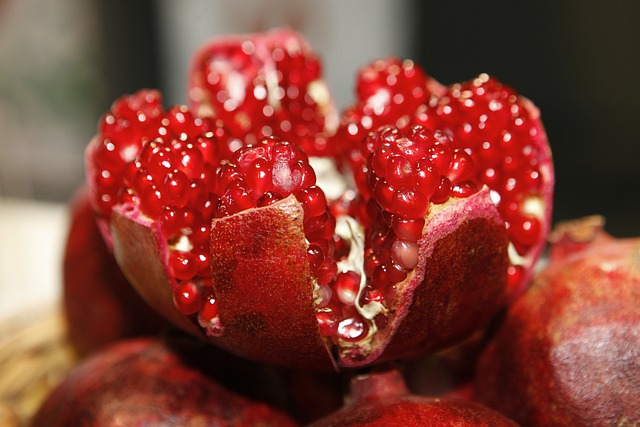
Pomegranates are among the best anti-aging allies that can be found in nature. This fruit contains an incredible amount of antioxidants capable of counteracting the action of free radicals and preventing premature skin aging. In particular, these antioxidants are flavonoids, which, in addition to having anti-aging properties, also have anti-inflammatory and gastro-protective properties.
Foods for healthy skin Health Tips
Don’t forget to moisturize as moisture is very important for the condition of your skin. Moisture keeps your skin fully hydrated, reducing the appearance of fine lines and wrinkles. Hydration also helps with nutrient absorption, removes toxins, and promotes blood circulation.
In addition to diet and hydration, maintaining hygiene is also a very important part. Specifically, don’t touch your face before washing your hands. Your hands carry more germs than you think, and occasional touching can lead to bacterial buildup. At the end of a long day, cleanse your face thoroughly to ensure that all environmental stressors, such as irritants, allergens, and microorganisms, as well as dust and sweat, are removed.
Conclusion
Ready for glowing skin? Choose nutrient-rich foods for healthy skin, like fatty fish, avocados, carrots, and dark chocolate, to enhance your skin’s health and appearance. These foods provide essential vitamins, antioxidants, and healthy fats that support hydration, elasticity, and protection against environmental stressors.
Remember, a balanced diet not only benefits your overall health but also promotes a radiant complexion and helps delay signs of aging. Pair your dietary choices with proper hydration and skincare routines for optimal skin wellness.
Frequently Asked Questions
1. Q: What are the top 3 foods for healthy skin?
A: The best foods for healthy skin include:
-
Fatty fish (salmon, mackerel) for omega-3s that reduce inflammation
-
Avocados for vitamin E to fight wrinkles
-
Carrots for beta-carotene (converts to skin-protecting vitamin A)
2. Q: How quickly do foods for healthy skin show results?
A: Most people notice improved hydration within 1-2 weeks. For acne or wrinkles, allow 6-8 weeks of consistent eating—skin cell turnover takes time!
3. Q: Can foods replace my skincare routine?
A: While foods for healthy skin nourish from within, they work best with topical products. Think of diet as your foundation and skincare as the finishing touch.
4. Q: Are expensive superfoods necessary?
A: Not at all! Affordable skin-boosting foods like:
-
Sweet potatoes
-
Sunflower seeds
-
Green tea is just as effective. Focus on variety, not price tags.
5. Q: Which foods are best for glowing skin and helping with acne?
A: Try these science-backed picks:
-
Walnuts (zinc reduces breakouts)
-
Green tea (antioxidants calm redness)
-
Probiotic yogurt (balances gut-skin axis)
